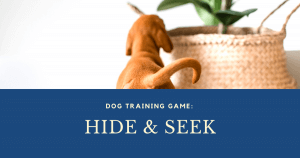Traveling can be stressful- not necessarily for your pets, but for the human family! How can you trust the person caring for your pets? Will they be prepared? Have you set expectations? Are you able to get into contact with them while you’re away?
Here’s five things to do to prepare for a sitter, from finding one to finally leaving all your worries behind.
1. Figure out if pet sitting is the best choice and if a particular pet sitter is best for you
Ask yourself questions like…
- Will my pets do well at home with a sitter following their normal routine as much as possible for the duration of your trip?
- Does my pet have extreme medical issues that my veterinarian may suggest medical dog boarding or cat boarding?
- Is this pet sitter insured, bonded, and experienced?
- Is your pet sitter able to provide proof of their insurance by request?
- Can your sitter provide references and has mostly positive online reviews on reputable sites?
2. Meet and Greet
Most pet sitters offer complimentary meet and greets. This gives you and your pet a chance to meet your pet sitter and they can meet you! This is the time to determine if you and the pet sitter are a good fit for each other. If you don’t feel comfortable with your sitter for any reason, it is better to move on than to be unsure of your sitter. We also follow our gut here. No hard feelings!
Set expectations with your pet sitter during this time. Explain your home, your pets, and the type of routine you’d like to setup that your pet sitter will take on. Show them where all of the necessities are for your pets and any home-related tasks you need taken care of while you’re away. Be sure to explain how you want them to access your home and, if applicable, give them a key at this time.
3. Prepare for Your Pet’s Care
Blue Skies Pet Care’s clients complete a detailed online Home, Contact, and Pet Profile that helps your dog sitter care for your furkids in the best way possible. I have created a form that helps us gather as much useful information before you leave so we know what to do, especially if an unexpected situations arises.
If choosing another pet sitter that doesn’t supply a form for your to fill out, be sure to leave detailed information for any household tasks your sitter should be doing, your contact information for while you are away, as well as pet care information such as feeding, exercise, medications, and veterinary information.
Make sure your veterinarian knows who will be taking care if your pets in your absence. Ask them if they will need something in writing so your pets can be treated in case of an emergency and you are not available.
Also, be sure pets have collars with identification and contact information on them. Be sure there are extra supplies on hand in case you are gone longer than planned and ask if your sitter is comfortable picking these things up and billing you later should you run out.
4. Prepare Your Home
Be sure your home is secure against little wet noses. Be sure all hazards are up out of the way and that, if your pet is locked in part of the house while unsupervised, that they cannot escape the area of the house they are allowed. Be aware of poisons (mouse poison, insect poison, cleaning supplies, perfumes, medications, certain plants, etc) and how accessible they are to your pets.
5. Home Security
Leaving your home can be a bit stressful, too, but many of us are lucky enough to have neighbors watching out for us. Be sure any concerned neighbors are aware of your pet sitter and let your pet sitter know if anyone else entering the premises during your trip. This way we can avoid any false alarms!
Please try to avoid scheduling home services during your trip if at all possible. If you are expecting someone other than your sitter to be entering the home while you are away, let your sitter know and be sure to let them know if you are needing to arrange someone to let them in and out.
Lights on timers, alarms, and cameras are all useful safety features. Be sure all windows and doors are locked before your departure (I’ve even arrived to open windows and doors), secure your outdoor gates, and be sure your sitter has your alarm code. A special guest code would be best for your sitter so you know exactly who is entering your home and when.


